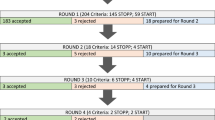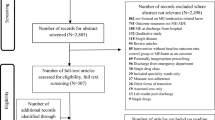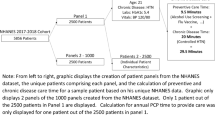Summary
Disease management is a new method of managing healthcare which has arisen in response to rising healthcare costs and the integration of healthcare providers. Disease management is defined as an integrated, systems approach to healthcare designed to influence the progression of disease within selected patient populations. In disease management, a detailed analysis of a patient population’s medical needs and the resources it consumes is performed in order to design, implement and control the delivery of care. Selection of disease management strategies is based on application of the best scientific evidence currently available Ideally, disease management crosses organisational and professional boundaries resulting in seamless care for patients.
Originating in the managed care literature, disease management has five primary characteristics. The first is a disease focus in which interventions target patient populations which are at risk of or have defined diseases. The second characteristic is the use of a population-based strategy, i.e. one that emphasises the overall care of patient populations rather than of individual patients. The third characteristic of disease management is a systems approach in which the various components of the healthcare system are integrated into a seamless process of care. Fourth, disease management is evidence-based in that it uses information from the medical literature and clinical experience to develop clinical guidelines and protocols for application to clinical practice. Finally, disease management focuses on outcomes rather than processes of care.
Pharmacists can fulfil numerous roles in disease management because effective drug therapy is the key to managing most diseases. Pharmacist participation in disease management is often directed toward meeting the needs of managed care organisations (MCOs). Pharmacists will be better able to meet the needs of MCOs if the services they provide are consistent with a population-based, integrated systems approach to healthcare. Pharmacists can accomplish this by working with other pharmacists to provide disease management services for large managed care populations over wide geographical areas and by integrating their services with other healthcare providers. Pharmacists can provide disease management outside of a managed care model by individually submitting claims for disease management services to insurers, by having patients pay for services out-of-pocket and by using disease management as a way of differentiating themselves from competitors. Obstacles to pharmacist participation in disease management include the continued short term, component focus of healthcare insurers, the need for more detailed patient information and outcomes data for pharmacists and the need for more training in disease management for pharmacists.
Similar content being viewed by others
References
Lumsdon K. Disease state management: the heat and headaches over retooling patient care create hard labor. Hosp Health Netw 1995; 69 (7): 34–42.
Muirhead G. Is it here? Disease management: a reality check. Drug Topics 1995 Apr 10; 139 (7): 28, 33.
Castignoli WG. Is disease management good for an ailing industry? Med Marketing Media 1995; 1: 46–53.
Hunter DJ, Gillian F. Disease management. BMJ 1997; 314 (7099): 50–3.
Peterson C. Disease state management: a new view of an old idea. Manage Healthcare 1995; 5: 45–52.
Piocher DW. Disease management. In: Kongstvedt PR, editor. The managed healthcare handbook. 3rd ed. Gaithersburg (MD): Aspen, 1996; 318–29.
Southwick K. Disease management update. Manage Healthcare 1995 May; 5 Suppl. 1: S31–4.
Levitt KR, Lazenby HC, Braden BR, et al. National health expenditures. Health Care Financ Rev 1996; 18 (1): 1–43.
Bodenheimer TS, Grumbach K. Understanding health policy: a clinical approach. 1st ed. Stamford (CT): Appleton & Lange, 1995.
Leape LL. Error in medicine. JAMA 1994; 272 (23): 1851–7.
Winslow R. Quality of HMOs in the US varies widely, report finds. Wall Street J (Interactive) 1997 Oct 2.
Anonymous. The changing health care system: fostering relationships between managed care and pharmacy. Washington, DC: American Pharmaceutical Association & Academy of Managed Care Pharmacy, 1996.
McGahan AM. Industry structure and competitive advantage. Harvard Business Rev 1994 Nov-Dec; 72: 115–24.
Navarro RP, editor. Ciba Geneva Pharmacy Benefit Report. Summit (NJ): CibaGeigy, 1996.
Holdford DA, Kennedy DT, Bernadella P, et al. Implementing disease management in community pharmacy practice. Clin Ther 1998; 20 (2): 328–39.
Holdford DA. Barriers to disease management. Am J Health Syst Pharm 1996; 53: 2093–6.
Sclar DA. Disease management: an overview for the managed care pharmacist. Drug Benefit Trends 1996; 7 (5): 8, 10–11, 15–16.
Taplin S, Galvin MS, Payne T, et al. Putting population-based care into practice: real option or rhetoric? J Am Board Fam Pract 1998; 11 (2): 116–26.
Shortell SM, Kaluzny AD. Health care management organization design and behavior. 3rd ed. Albany (NY): Delmar Publishers Inc, 1994.
Ken T. Disease state management: continuous health-care improvement. Bus Health 1995; 13 (4): 64–9.
Stern CS. How to evaluate disease state management programs. J Managed Care Pharm 1997; 3: 270, 273–274, 277–78.
Amerson AB. Population-based pharmaceutical care. J Am Pharm Assoc 1998; 38 (1): 7.
Soumerai SB, McLaughlin TJ, Ross-Degnan D, et al. Effects of limiting Medicaid drug-reimbursement benefits on the use of psychotropic agents and acute mental health services by patients with schizophrenia. N Engl J Med 1994; 331: 650–5.
Ellrodt G, Cook DJ, Lee L, et al. Evidence-based disease management. JAMA 1997; 278 (20): 1687–93.
Wongwiwatthananukit S, Jack HS, Popovich N. Smoking cessation: part 1 — an overview. J Am Pharm Assoc 1998; 38 (1): 58–70.
Woolf SM. Practice guidelines: a new reality in medicine. I: recent developments. Arch Intern Med 1990; 150: 1811–8.
Holdford DA, Smith S. Improving the quality of outcomes research involving pharmaceutical services. Am J Health Syst Pharm 1997; 54: 1434–42.
Munroe WP, Dalmady-Israel C. The community pharmacist’s role in disease management. Drug Benefit Trends 1997; 9 (9): 74–7.
Gannon K. State of disease management. Drug Topics 1997; 141 (1): 42.
Rodgers K. Saving lives, saving dollars; Ohio institutes disease state management for heart failure. Drug Topics 1996; 140 (13): 90.
Lima HA. Disease management in the alternate-site health care setting. Am J Health Syst Pharm 1998 Mar 1; 55: 471–6.
Trice SB. DUE: moving toward disease management. Consult Pharm 1995; 10 (5): 402, 406–408, 410, 420.
Marcille JA. Contracting: how will you measure up? Managed Care Pharm Pract 1995 May/Jun; 2 (3): 16–23.
Munroe WP, Kunz K, Dalmady-Israel C, et al. Economic evaluation of pharmacist involvement in disease management in a community pharmacy setting. Clin Ther 1997; 19 (1): 113–23.
Johnson JA, Bootman JL. Drug-related morbidity and mortality: a cost-of-illness model. Arch Intern Med 1995; 155: 1949–56.
Hatoum HT, Akhras K. 1993 Bibliography: a 32-year literature review on the value and acceptance of ambulatory care provided by pharmacists. Ann Pharmacother 1993; 27 (9): 1106–19.
Johnson JA, Bootman JL. Drug-related morbidity and mortality and the economic impact of pharmaceutical care. Am J Health Syst Pharm 1997; 54: 554–8.
Curtiss FR. Lessons learned from projects in disease management in ambulatory care. Am J Health Syst Pharm 1997; 54: 2217–29.
Currie JD, Chrischeilles EA, Kuehl AK, et al. Effect of a training program on community pharmacists’ detection of and intervention in drug-related problems. J Am Pharm Assoc 1997; NS37 (2): 182–91.
Navarro RP, editor. Novartis Pharmacy Benefit Report (after report: 1997 Facts and Figures). East Hanover (NJ): Novartis, 1997.
Author information
Authors and Affiliations
Corresponding author
Additional information
About the Author: David A. Holdford, Ph.D., is Assistant Professor of Pharmacy Administration, College of Pharmacy, Virginia Commonwealth University (VCU), Richmond. At VCU, Dr Holdford teaches management, services marketing and pharmacoeconomics. Dr Holdford’s current research interests focus on methods for assessing the quality of pharmaceutical services and the marketing of innovative pharmaceutical programmes. He has published research on disease management, outcomes research and reimbursement of pharmacists for cognitive services.
Rights and permissions
About this article
Cite this article
Holdford, D. Disease Management and the Role of Pharmacists. Dis-Manage-Health-Outcomes 3, 257–270 (1998). https://doi.org/10.2165/00115677-199803060-00001
Published:
Issue Date:
DOI: https://doi.org/10.2165/00115677-199803060-00001




